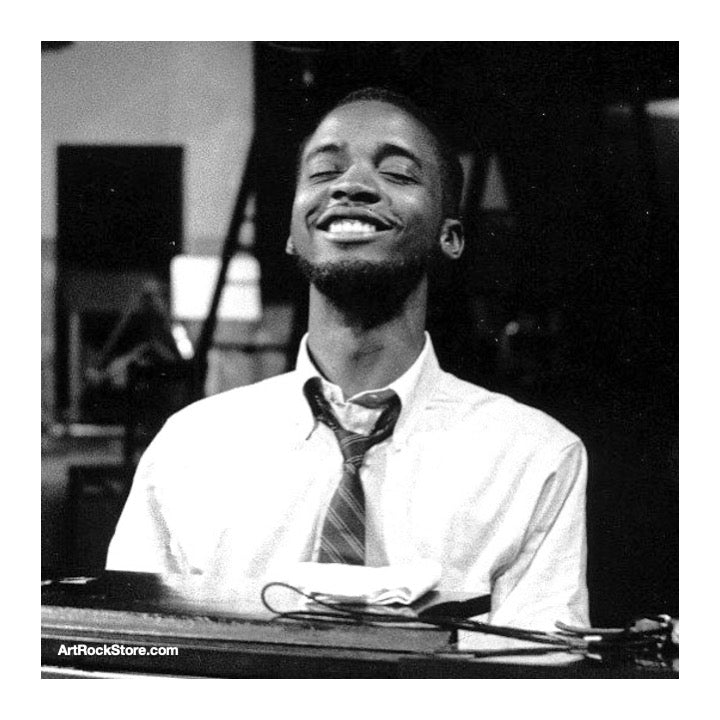
Ahmad Jamal | Artist
Frederick Russell Jones aka Ahmad Jamal is an American jazz pianist, composer, bandleader and educator, born 1930 in Pittsburgh, Pennsylvania (he converted to Islam and changed his name to Ahmad Jamal in 1950). For six decades, he has been one of the most successful small-group leaders in jazz. Beginning formal piano training at the age of seven and playing professionally by the age of fourteen, Jamal's Pittsburgh roots remained an important part of his identity, influenced by jazz artists such as Earl Hines, Billy Strayhorn, mary Lou Williams and Erroll Garner. He made his first records in 1951 for the Okeh label with The Three Strings band, which would later be renamed the Ahmad Jamal Trio. The were the "House Trio" at Chicago's Pershing Hotel and released the live album, At The Pershing: But Not For Me which stayed on the Ten Best-selling charts for 108 weeks. Jamal's recording of the well known song "Poinciana" was first released on this album. The financial success of Live at the Pershing allowed Jamal to open a restaurant and club called The Alhambra in Chicago. In 1962 The Three Strings disbanded and Jamal moved to New York City, where, at the age of 32, he took a three-year hiatus from his musical career. After returning to music, up until 1970, he played acoustic piano exclusively. The final acoustic piano album was the critically acclaimed 1970 release The Awakening, after which he switched to the Fender Rhodes electric piano. He made an instrumental recording of "Suicide is Painless", the theme song from the 1970 film Mash, which was released on a 1973 reissue of the film's soundtrack album, replacing the original vocal version of the song by The Mash. Over his career, Jamal has release over 50 studio albums plus a further 20 live albums. Standout releases include But Not for Me: Ahmad Jamal Trio at the Pershing (1958), Extensions (1965), The Awakening (1970), Jamal Plays Jamal (1974), The Essence: Part 1 (1995), In Search of: Momentum (2003), and Live at the Montreal Jazz Festival (1985). Jamal entered the world of jazz at a time when speed and virtuosic improvisation were central to the success of jazz artists. Jamal, however, took steps in the direction of a new movement, later coined "cool jazz" – an effort to move jazz in the direction of popular music. He emphasised space and time in his musical compositions and interpretations instead of focusing on the blinding speed of bebop.
Artist Website: wikipedia/Ahmad_Jamal
Featured Albums: Ahmad Jamal
Related Artists: Ahmad Jamal Trio
